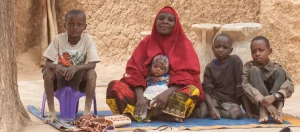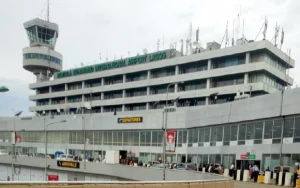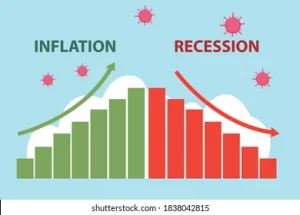
By David Akinmola
In a bid to address growing infrastructure gaps and stimulate economic recovery, the Federal Government of Nigeria has provided a detailed clarification on its proposed $21.5 billion loan request.
The government confirmed that it is in advanced discussions with multiple international partners, including the World Bank, the African Development Bank (AfDB), China, France, and the European Union, for a mix of concessional and low-interest financing.
A Strategy for Growth, Not Burden
Speaking at a press briefing in Abuja, Minister of Finance and Coordinating Minister of the Economy, Dr. Zainab Yusuf, emphasized that the proposed debt would be carefully managed and targeted toward critical development priorities.
“This is not reckless borrowing,” Dr. Yusuf said. “Each component of the $21.5 billion proposal is linked to specific projects designed to boost productivity, generate jobs, and improve the lives of Nigerians. We are prioritizing infrastructure, agriculture, healthcare, education, and power.”
The breakdown of the proposed loan reveals a multilateral strategy:
-
World Bank: $6 billion earmarked for power sector reforms, school rehabilitation, and healthcare digitization.
-
African Development Bank (AfDB): $3.5 billion for agriculture modernization and road projects in rural communities.
-
China (via Exim Bank): $5 billion for rail expansion, including the long-anticipated Lagos-Calabar Coastal Rail Line.
-
France (AFD): $2 billion targeting renewable energy and urban transport improvements.
-
European Union: $5 billion in mixed grant-loan packages for climate resilience, food security, and digital infrastructure.
Transparency and Accountability Measures
Amid public concern about Nigeria’s rising debt profile, Dr. Yusuf reassured citizens that this borrowing would be transparently managed. She noted that the Debt Management Office (DMO) has instituted enhanced monitoring frameworks and will publish quarterly progress reports on each funded project.
“The era of loans disappearing into thin air is over,” she said. “Our government has signed onto international debt transparency standards. Every dollar borrowed will be accounted for.”
Legislative Scrutiny and Stakeholder Engagement
The proposed borrowing plan has been submitted to the National Assembly for approval. Early indications suggest a mixed reception. While some lawmakers commend the foresight in targeting strategic sectors, others have urged caution given the country’s current debt servicing challenges.
Senator Ibrahim Salihu, Chair of the Senate Committee on Finance, stated: “We welcome development financing, but we must ensure Nigeria is not saddled with unsustainable debt. Oversight will be rigorous.”
The Ministry of Finance also confirmed that consultations are ongoing with civil society organizations, state governors, and private sector representatives to ensure inclusivity and effective deployment of resources.
Economic Context
Nigeria, Africa’s largest economy, has faced tough fiscal pressures following years of sluggish oil revenues, COVID-19 aftershocks, and inflationary trends. According to the Central Bank of Nigeria, public debt stood at $113 billion as of Q1 2025. However, officials argue that concessional loans like those under discussion pose less risk due to longer repayment windows and lower interest rates.
Economist and policy analyst Dr. Amaka Okafor notes, “If managed well, this borrowing could be a turning point. The key is implementation and ensuring value-for-money in every project.”
Looking Forward
The government remains optimistic that negotiations with its funding partners will conclude by Q4 2025, paving the way for phased disbursements starting early 2026.
As Nigeria seeks to rebuild its economy, restore investor confidence, and deliver critical infrastructure, the stakes of this $21.5 billion loan package could not be higher.
“Development is not free,” Dr. Yusuf concluded. “But with the right partnerships and the discipline to deliver results, this investment can chart a new course for Nigeria’s future.”








